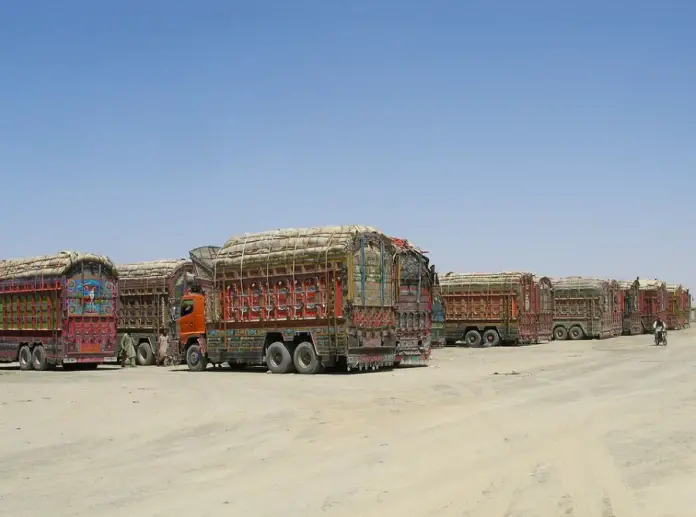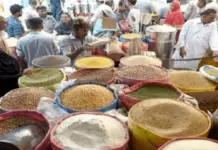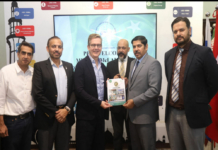After facing disruption due to Taliban’s takeover in Kabul and resultant complications, bilateral trade between Pakistan and Afghan is picking up momentum again.
This was stated by Iftikhar Ali Malik, president of South Asian Association for Regional Cooperation (SAARC) Chamber of Commerce and Industry, on Tuesday while talking to a delegation of exporters.
Malik said that Pakistan-Afghanistan trade could be increased manifolds if old infrastructure is replaced with modern facilities of handling at all land border routes including Thorkham and Chaman for early scanning and clearing of goods from either side. He stressed the need for fast track resolution of all issues including removal of non- tariff barriers impeding the smooth flow of bilateral trade, besides further strengthening of economic ties with Afghanistan.
He lamented that Pakistan annual exports to Afghanistan tumbled from $2 billion a couple of years ago to $700 million. He said earlier Pakistan used to export up to 50,000 tons of cement and 100,000 tons of iron bars during the last two year, but not any more now because of odd and unrealistic policies of the previous Afghan government.
Malik said recently Pakistan, prior to the Taliban new regime, suffered a setback as its exports to Afghanistan fell 5.5 percent from $790 million to $746 million during the first nine months of last fiscal year mainly due to their unfriendly policies towards Pakistan. He said now the situation is altogether changed, and Pakistani traders, exporters and importers will extend full cooperation to their Afghan brothers and meet their demands on top priority.
He said Pakistan has always attached great importance to Afghanistan and its people on the basis of religion and rich cultural heritage. He said Prime Minister Imran Khan has directed the authorities concerned in Pakistan to help facilitate quick clearing of goods at all land borders.
He said SAARC Chamber has also set up a special cell in Pakistan for better coordination with Afghan traders and help address their problems if any on top priority.







